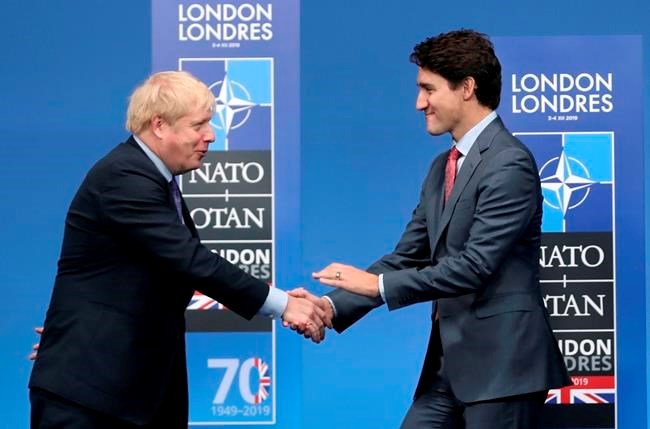OTTAWA — Canada and the United Kingdom have inked a temporary agreement that will head off an automatic increase in tariffs that was set to kick in when Britain leaves the European Union next week.
Deputy Prime Minister Chrystia Freeland announced the last-minute deal on Tuesday, ensuring Canadian goods such as maple syrup , lobster, beef and car parts aren't slapped with British tariffs on Jan. 1.
"With this announcement, our government will ensure Canadian businesses that trade goods with the United Kingdom continue to have preferential access," Freeland said in a statement.
"This action is important for many businesses and jobs in Canada, which benefit from the strong economic ties between our two countries."
Canada and Britain conduct about $29 billion in trade each year, according to the federal government, with the U.K. ranks as Canada's third-biggest export market.
Trade between the two countries is currently covered by the free-trade agreement that Canada has with the EU, but that will no longer be the case when Britain formally leaves the European bloc.
Officials in Ottawa and London negotiated a new treaty extending the terms of the EU deal to Britain after Brexit, but Parliament did not approve that agreement before rising for the Christmas break.
That sent both governments scrambling to figure out a way to stop the tariffs from being automatically re-imposed.
Freeland and International Trade Minister Mary Ng say the new memorandum of understanding between the two countries allows for tariffs to remain at their current levels until the full trade deal is approved.
British trade officials expressed concern and disappointment earlier this month that Canada’s Parliament wouldn't formally ratify the new trade agreement ahead of Jan. 1.
The officials said they were concerned the delay would inflict “damage and destruction” on businesses, and blamed the situation on Canadian politicians who they said couldn't set aside their partisan differences.
This report by The Canadian Press was first published Dec. 22, 2020.
The Canadian Press



